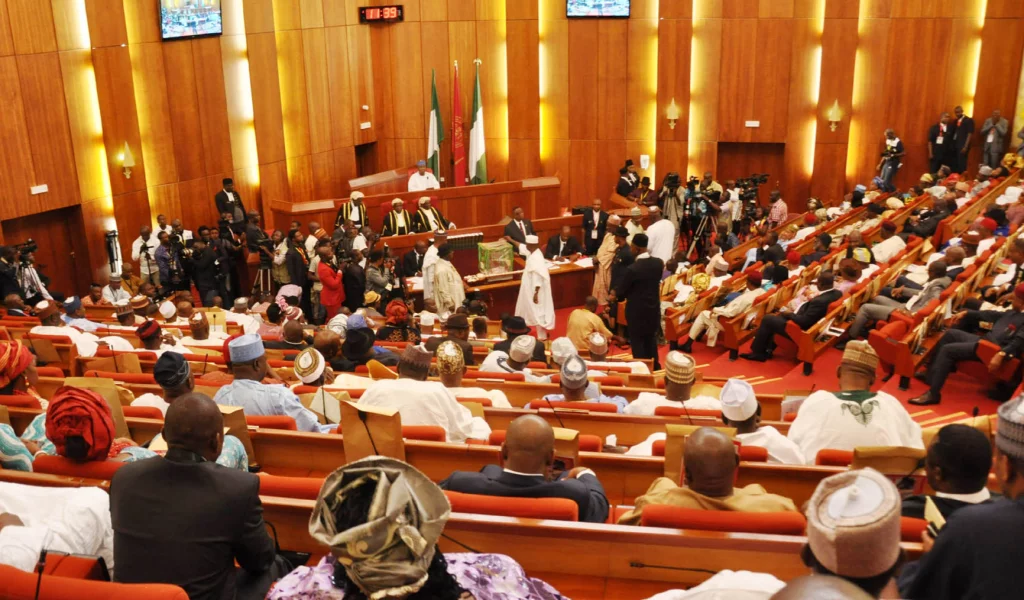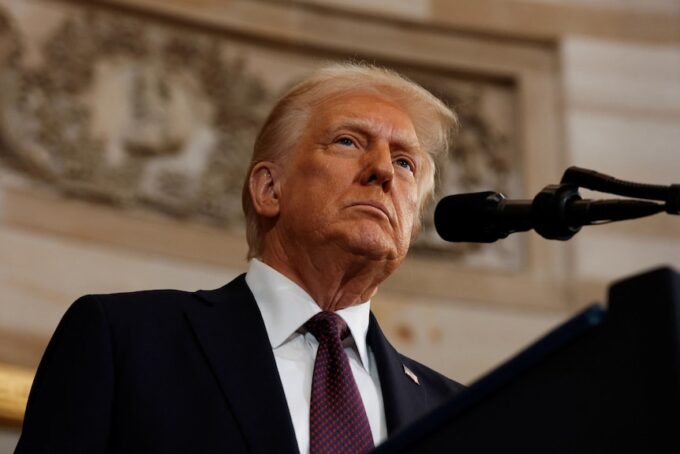News | Events | Digital PR | Advertising
Senate Approves President Tinubu’s ₦1.77 Trillion Loan Request to Address Budget Deficit

The Senate has approved President Bola Tinubu’s request for a ₦1.77 trillion ($2.2 billion) loan following a voice vote in favor of the proposal.
The approval came after the Senate Committee on Local and Foreign Debts, chaired by Senator Wammako Magatarkada (APC, Sokoto North), presented their report. The request, submitted by the President on Tuesday, forms part of a new external borrowing plan to help cover the ₦9.7 trillion budget deficit for the 2024 fiscal year.
In his letter to the National Assembly, Tinubu sought approval for an additional ₦1.767 trillion ($2.209 billion) in external borrowing as part of the 2024 Appropriation Act.
This new loan will further increase the government’s debt servicing costs. According to the Central Bank of Nigeria (CBN), the Federal Government spent $3.58 billion on servicing foreign debt in the first nine months of 2024, marking a 39.77% increase from the $2.56 billion spent during the same period in 2023.
The CBN’s international payment statistics show that the highest monthly debt servicing cost in 2024 occurred in May, at $854.37 million, compared to $641.70 million in July 2023.
The report highlights the rising costs associated with Nigeria’s foreign debt obligations. In January 2024, debt servicing surged by 398.89%, rising from $112.35 million in January 2023 to $560.52 million. February saw a slight 1.84% decrease, while March recorded a 31.04% drop. However, April saw a significant 131.77% increase.
May 2024 marked the highest payment, with $854.37 million spent, reflecting a 286.52% rise from $221.05 million in May 2023. By July 2024, the payment dropped by 15.48%, and August saw another decline of 9.69%. September 2024 recorded a 17.49% increase, with $515.81 million spent, up from $439.06 million in 2023.
The growing costs and the impact of rising exchange rates highlight the increasing pressure on Nigeria’s foreign debt obligations.
Explore more
Scientists Research Nigeria’s Okra, Maize, Four Other Crops During NASA’s Space Mission
International astronauts will research six indigenous Nigerian crops and seeds during the...
President Trump Orders Pharmaceutical Companies To Cut Drug Prices Within 60 Days
President Donald Trump on Thursday said he asked major pharmaceutical companies to...
Microsoft To Become The Next $4 Trillion Company
Microsoft (MSFT.O), opens new tab soared past $4 trillion in market valuation...
Importers Slash Petrol Prices Below Dangote Rates Amid Rising Market Competition
Competition has hit Nigeria’s petroleum sector as fuel importers slash petrol prices...












Leave a comment